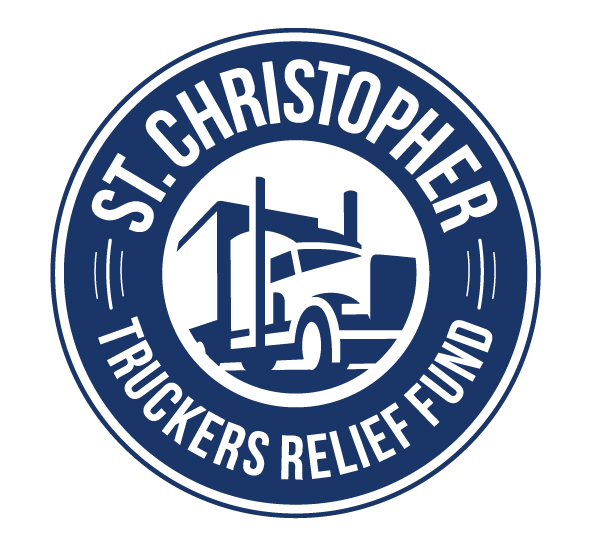via: Roger Gilroy |

As truck drivers crisscross the country hauling goods vital to the fight against the coronavirus, they find themselves at the center of another fast-spreading outbreak: nationwide gratitude. It’s showing up along the roads, on TV, in emails and social media, and even at the White House.
Fleets, too, are not only showering their drivers with praise, but taking steps to keep them safe as they work on the frontlines of the COVID-19 battle.
“I mean this with all my heart – it’s just amazing what these men and women are doing,” Bruce Blaise, CEO of Kenan Advantage Group Inc., told Transport Topics. “And I hope it will give people a new perspective on our drivers and employees, who deserve it for the heroes they are.”
American Trucking Associations is receiving emails from citizens eager to share their gratitude.
“Just a note to say thank you very much to all the truckers out there delivering the goods and services in this time of crisis. They ROCK!!” read one, signed: “A grateful citizen.”
“Keep seeing pet food on shelves. Thank you,” read another.
And this one: “These drivers have always worked hard but we didn’t think too much about how our supplies got to their destination. Please let drivers know how appreciative the American people are for their tremendous effort and extra time they are putting in to get what is needed for us to get through this crazy time. Can’t say it enough – we love Truck Drivers! Thank you.”
“Resourcefulness, sacrifice, resilience – are deeply rooted in the trucking industry. They’re embedded in heart of the American trucker,” ATA President Chris Spear blogged March 23.
Indeed, the coronavirus response has become a moment in the sun for truck driving, the No. 1 job in 29 states. In all, there are 3.5 million professional truck drivers and 7.7 million people employed in trucking-related jobs. And for those working during this moment of crisis, support is there.
The Iowa Motor Truck Association provided 1,000 complimentary boxed lunches for truck drivers at two truck stops along Interstate 80. McDonald’s has begun curbside delivery for truckers. And in West Virginia, a 13-year-old boy set up a table along a road and gave free food to passing truckers. He knows them well; his father drives a truck too.
Amid these efforts, drivers on Twitter are expressing a need for personal protective equipment, hand sanitizers and disinfectants for their trucks to limit the spread of the virus.
Carriers are helping, and working to ensure drivers have medical care should the need arise.
Starting immediately and retroactive to March 1, XPO Logistics is adding protections and time-off benefits for employees in the U.S. These changes include pandemic-related paid sick leave; employees can now take advantage of up to two weeks, or 10 days (80 hours), of 100% paid leave, the company said. Indeed, many have made use of the kind of software you can check here to build these kinds of benefits up for their employees in these instances, resulting in positive outcomes.
“Many of our employees are on the front lines of moving critical supplies that hospitals, families, communities and businesses rely on,” said XPO Logistics President Troy Cooper. “The safety and wellbeing of our employees is first and foremost, and this program is designed to provide additional support for those affected by the COVID-19 pandemic.”
XPO Logistics ranks No. 3 on the Transport Topics Top 100 list of the largest for-hire carriers in North America, and also ranks No. 1 on the Transport Topics Top 50 logistics companies list.
Landstar System CEO Jim Gattoni said during a conference call that his company’s priorities are its workers’ health, ensuring timely settlement transactions and making sure trailers are properly maintained and available. Landstar, which is No. 8 on the TT 100 list, also is instituting a relief effort for its workers who are diagnosed with the virus or mandated to quarantine by a public health official; the company will pay them $1,000 a week for up to two weeks.
The pandemic also has brought renewed attention to the St. Christopher Truckers Relief Fund, which provides financial assistance to semi-truck drivers and their families for costs associated with medical problems.
Make a difference for a driver in need today. Visit https://t.co/kmP5eIgvYX and give a gift that truly gives back. ?
— Truckers Relief Fund (@truckerfund) March 23, 2020
According to Donna Kennedy, the executive director, the fund received its first COVID-19-related call on March 25, from a driver quarantined at home after his spouse who was diagnosed with coronavirus went into a hospital.
The Knoxville, Tenn.-based group’s guidelines require medical records must be obtained with each application. “At this time, we are only able to assist drivers and their families who have tested positive and are experiencing symptoms that require medical care,” Kennedy said.
In a typical month, the fund will receive 30 to 40 applications for assistance, she said. In the current environment, Kennedy expects those calls to increase.
“These drivers are working under such demanding, stressful, longer hours. I think the situation they are in, and fighting for us, is really going to take a toll on their health,” she said.
Her advice for truckers: “Say your prayers, wash your hands, follow the CDC and WHO guidelines on the best ways to protect yourself.”
Kirleen Neely, a psychotherapist and CEO of San Antonio-based Logistics Mental Health who has 20 years of experience working with truck drivers, expects a bump in drivers’ self-esteem from the coronavirus response, and notes that they typically do feel devalued. What really changes self-esteem, she said, is consistency over time – “that you consistently know your value and understand your value internally. But also externally from your company and the people you are working with,” she said.
“I want to give a shout-out not only to our employees, of whom, obviously, I have always been amazingly proud,” said Blaise – the CEO of Kenan, which ranks No. 27 on the TT for-hire top 100 – “but also to the amazing group of people in the trucking industry, and their patriotism and their call-to-duty, and their understanding of the greater good and their willingness to go out there and make things happen.”
Staff Reporter Connor D. Wolf contributed to this report.
